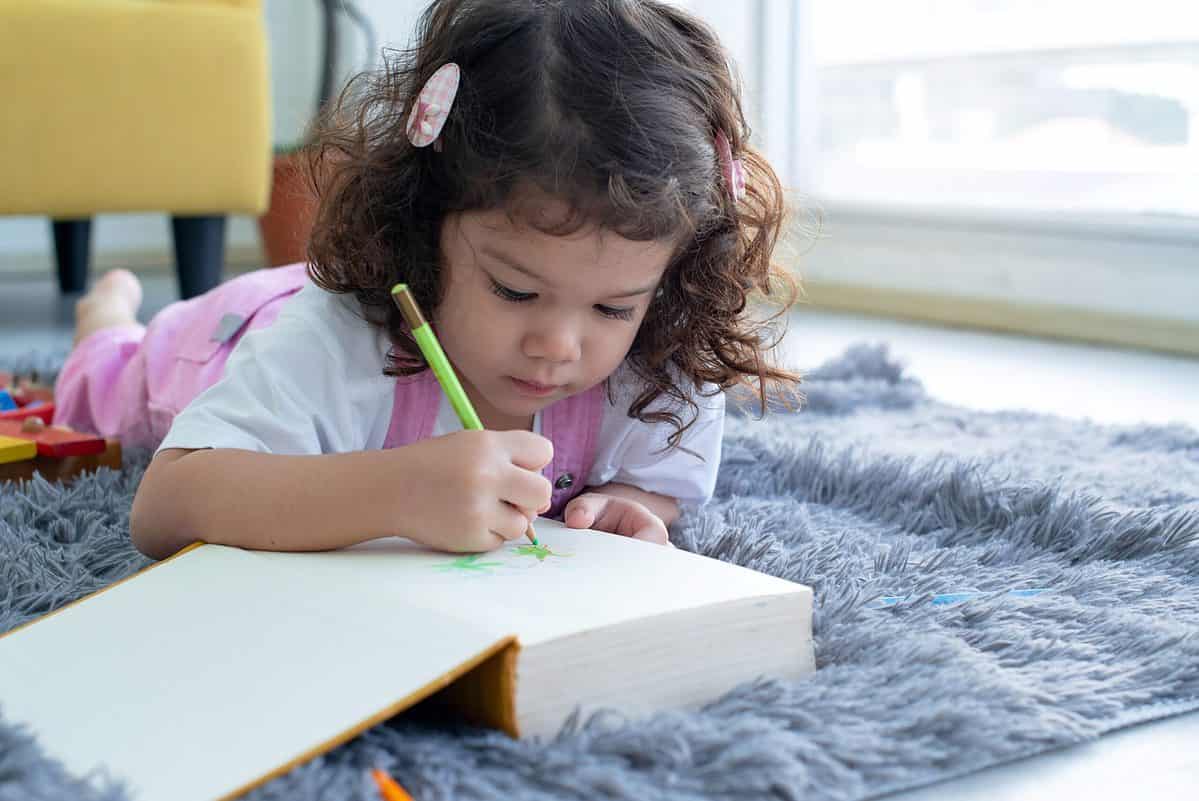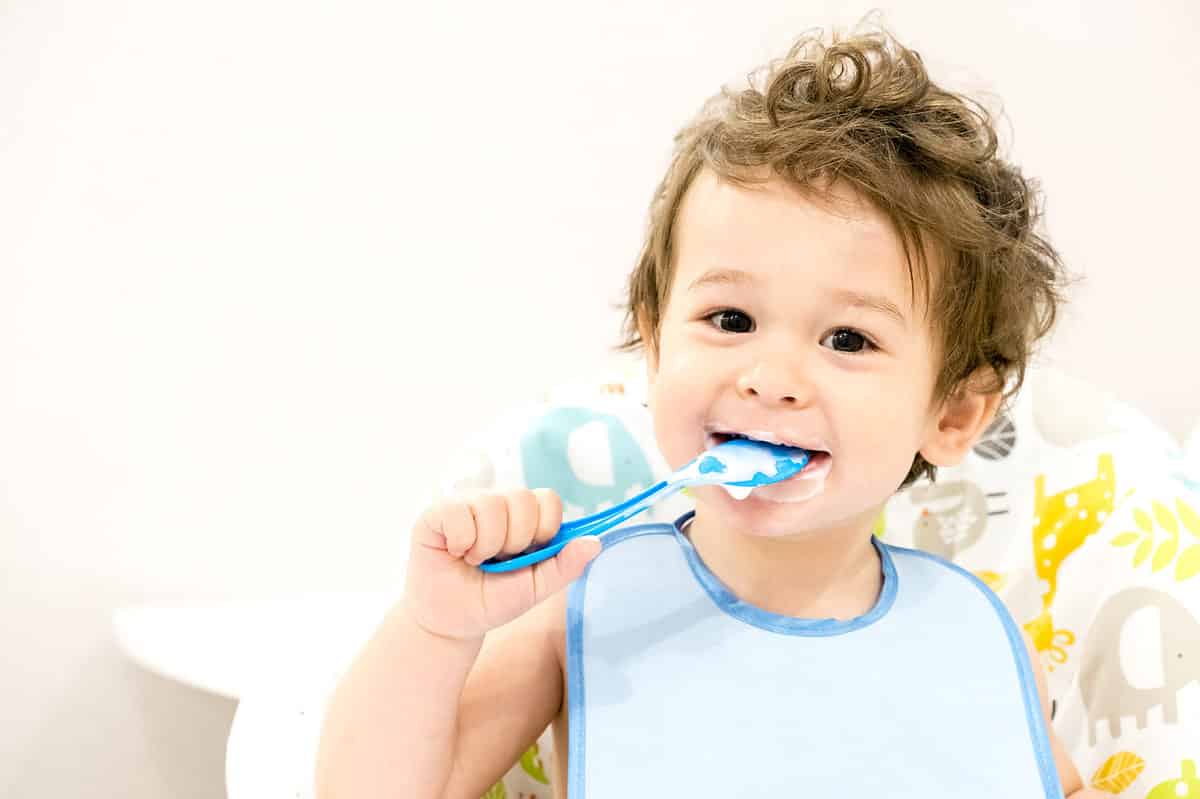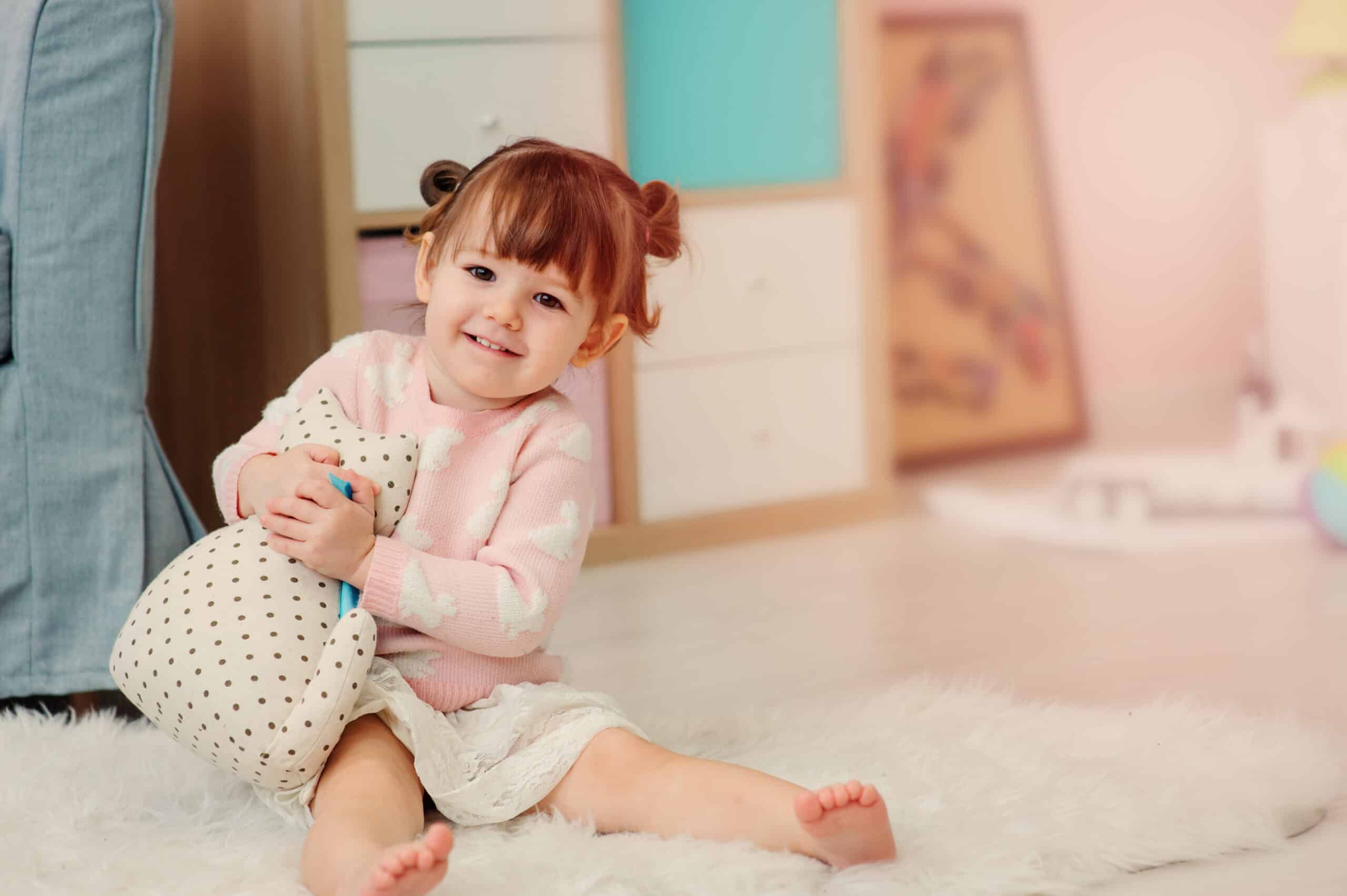The time has flown by and your son or daughter is already 30 months old! This is a remarkable time when you will see your child continue to evolve to new heights. Yes, this is in the middle of the “terrible twos,” but there is a lot of joy to be had. Let’s take a look at the developmental milestones at 30 months of age and what you can expect during this amazing time.
Key Points of 30-Month Development
- Their language skills will be even more developed and should have a vocabulary of roughly 50-250 spoken words.
- Around 30 months kids should be eating close to the same schedule as adults. 3 meals and 2 snacks. However, dairy and high calcium should be high in their diets.
- Motor skills should be highly developed for their age and should be moving around independently.
30-Month Development Skills

©chomplearn/Shutterstock.com
You will see that your child is evolving quickly at this point and learning new skills every day. It can be a very exciting time in your child's life as they become more and more independent. Let’s talk about some of the common cognitive, mental, and physical developments at this age.
Cognitive Development
Your child’s mental and cognitive development will grow by leaps and bounds at this time, and you will find that they will have a longer attention span and evolving problem-solving skills. At this point, your son or daughter will be better at sorting toys, they will understand basic logic, like how to use a stool to reach higher places, and they should know at least one of their colors.
This is also an exciting time because most kids this age will be able to follow two-step instructions like “pick up your doll and put it on the table.” Your child will also have a very active imagination at this time, and they will love to do things like pretend to feed their dolls and drive their toy cars around on the table.
This could be a great opportunity to build out their imaginations and language skills in one. A simple activity is to create a story with their toys or dolls. Ask them a lot of questions and simply say yes to what story they wish to create.
Language Skills
While every child is different, at 30 months old, your baby should be able to say at least 50 different words, including words like “doggie” and “potty.” Some children can say upwards of 250 words, but every kid is different. However, if your baby is only saying a handful of words at this time, then you may want to bring them in for a hearing evaluation.
This is also an exciting time because your child will also be able to string together two or three-word sentences. Simple sentences you may hear are things like “doggie run” and “what’s this.” Your child will also be interested in learning what new things are called, like the stuff they see in their books at bedtime.
Motor Skills
Your child will be a ball of activity at 30 months old. By this age, they should be able to walk up and down the stairs (sometimes with assistance), kick and throw balls, and build towers that are at least eight bricks tall. Other various physical development milestones you will see include:
- Ability to use hands to twist doorknobs and open doors.
- Take their own clothes off by themselves.
- Jump off of the ground with both feet.
- Turn the pages of a book one by one.
Keep in mind that every child is not the same and that some might develop these skills faster than others. Still, you should see these milestones soon. If you are not seeing several milestones in a row it might be a good idea to consult with your doctor.
30-Month Feeding Habits

©Yavdat/Shutterstock.com
As soon as your child turns two, they should start eating three meals per day and two snacks, and that routine should continue at 30 months. Provide a variety of food groups, including protein, grains, dairy, fruits, and vegetables. They will still eat small portions, typically only half of what an adult eats, at most. Dairy is very important at this age, and your child should be getting 700 mg of calcium per day. They can also eat low-fat foods, including cheese and yogurt.
Yes, your child will likely be a bit of a picky eater at this point. Try your best to feed them what they need. There are multiple ways to help your child get what they need. Consult this recipe guide for ideas. If you are concerned, talk to their doctor, and they will tell you if you need to alter their feeding habits.
30-Month Weight And Length Averages
All children will not be the exact same size at 30 months, but most will fall into certain averages, as listed below. If your child is slightly below or above these averages, then it is likely not a cause for concern. Major variations should be discussed with a doctor.
| Boys | Girls |
|---|---|
| Average weight: 29.3 pounds | Average weight: 28.8 pounds |
| Average length: 36 inches | Average length: 35.6 inches |
Miscellaneous Milestones At 30-Months
Below are various milestones to expect, including new skills and experiences. Some of these will be more exciting than others but all important in the story of your new child.
Teething
Although your baby may already have most of its baby teeth, many 30-month-old children will experience teething during this time. This is often when the 2-year molars erupt, and it can cause some discomfort. On the bright side, this is the end of the incoming teeth for now, and you won’t need to deal with new teeth again until they are closer to 6-years-old.
Potty Training
At 30 months old, your baby may either be fully potty trained or not potty trained at all. It all depends on their current abilities and their interest in learning. The key is that they must be able to recognize when they need to go to the bathroom and also pull their own pants down when the time comes. While most children can undress at 30 months, they must be able to know when to head to the bathroom. However, if they aren’t interested yet, then they will be soon.
Social Behavior
While your child may not technically understand what a friendship really is, they will enjoy playing alongside other kids at this age. Now that they have the ability to say more words, they find more ways to play with others. With that in mind, don’t be concerned if your child still has the occasional temper tantrum if things don’t go their way, as this is all a part of their development. Soon, those random fits will be a thing of the past.
Your child should also be more independent at this age. Although wanting to stay with mommy or daddy is normal, if they are abnormally clingy and they don’t want to leave your side at all, then it may be a red flag.
It is also around this time that your child may make up an imaginary friend that they reference from time to time. Children often create this friend to build their sense of security. As an example, if they are afraid of the dark, they tell their imaginary friend not to be afraid, but they are really soothing their own fears.
Artistic Abilities
One of the most exciting developmental milestones at 30 months of age is the fact that your child will be more imaginative and proficient with their art. Prior to this time, your child was likely only able to scribble on a paper with their crayons, but that was because they could not grasp the crayon. Now, at age 30 months, your child's hands develop better dexterity, and they should be closer to grabbing the crayon with a thumb and finger. Once they are able to do that, they can draw straighter lines and possibly even recognizable shapes.
Possible Sleep Regression
Many children can go through a sleep regression at this age, where they wake up in the middle of the night after months of sleeping straight through. This is typically not a cause for concern as your kid may be going through a growth spurt, teething, or another transition, like learning to use the potty. If you hear your child cry, give it a few minutes, and they should be able to self-soothe. If not, then go in and comfort them.
Planning For Preschool
Although they won’t be attending yet, this is also a good time to start looking into potential preschools where your child can continue to thrive. Visit a few schools that you like and bring your child to see how they interact with the other kids.
What Parents Should Watch Out for at 30 Months
Even with the understanding that every child is different, it is still important to be informed of the red flags that you should be aware of at this point. If your child is experiencing two or more of the red flags below, then you may want to consider a conversation with your pediatrician:
- Cannot put two words together.
- Cannot name at least three body parts.
- No interest in communicating with others.
- Unable to build a tower of more than four blocks.
- Failure to understand simple instructions.
- Difficulty handling small objects.
- Falling or difficulty with stairs.
In conclusion, these are the developmental milestones at 30 months of age that you should be aware of as your child gets bigger. Treasures these moments and look forward to more excitement to come.
Keep up with all of the key childhood developmental milestones here!
The image featured at the top of this post is ©Maria Evseyeva/Shutterstock.com.
